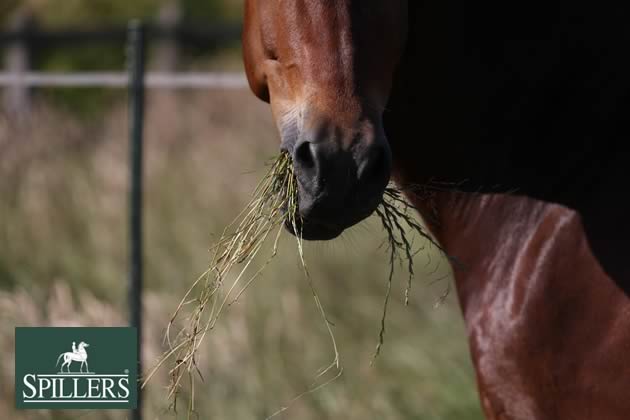
Horseytalk.net Special Interview
SPILLERS®
Improving communication of scientific evidence would enhance horse health and welfare

In a recent survey of UK horse owners, carers and yard managers, supported by SPILLERS® in collaboration with the Royal Veterinary College (RVC), three quarters of respondents said they believe that scientific research has positive impact on horse welfare, yet most find the science difficult to understand and act upon.
The online survey was conducted by Chantil Sinclair a PhD student at the RVC, supervised by Dr Jackie Cardwell, Dr Nicola Menzies-Gow (RVC) and Dr Carrie Roder (Anglia Ruskin University) plus Dr Pat Harris (WALTHAM). It was supported by SPILLERS® via WALTHAM®, who provide the science underpinning the brand. Some provisional results were presented at the International Equitation Science Conference in Rome earlier this year and more recently at the 15thInternational Symposium of Veterinary Epidemiology and Economics, in Chiang Mai, Thailand.
The example of laminitis was used to explore levels of knowledge and implementation of methods to reduce the risk of this disease, amongst 1,414 horse owners, carers and yard managers responsible for day-to-day horse management decisions. Over 75% of respondents who answered the question (n=1,205) practised routine foot care, feeding a balanced diet and maintaining an ideal body weight. Only 16% used a grazing muzzle and less than a third avoided turning out on a frosty morning, although 50% said that it was feasible to implement both of these measures.
The majority of respondents were positive about the idea of scientific research, with over three quarters agreeing with the statement "Scientific research has had an overall positive impact on horse welfare". However, when asked what they thought of scientific research, many considered it to be difficult to understand, sometimes contradictory, and difficult to implement.
"Findings from the provisional analysis have been generally positive, with most horse carers practising fundamental measures such as routine foot care and maintaining an ideal body weight. However, the overall feasibility and practice of some of the measures was generally quite low," said Chantil Sinclair. "The next part of our study will go on to explore the reasons behind this and how we can help overcome any barriers to optimal horse care."
The final analysis will be used to design an interview-based investigation of horse carers' barriers to or drivers for the adoption of evidence-based best practices. Then the study team will consider the most effective ways to facilitate the implementation of evidence-based science, in order to improve equine health and welfare.
Clare Barfoot RNutr, the research and development manager at SPILLERS® commented: "Optimum welfare and quality of life are at the heart of all we do at SPILLERS®. By learning what prevents horse carers from implementing research we can promote evidence-based horse care in better ways, ultimately to help us reduce the risks of nutrition-related disorders and diseases."



